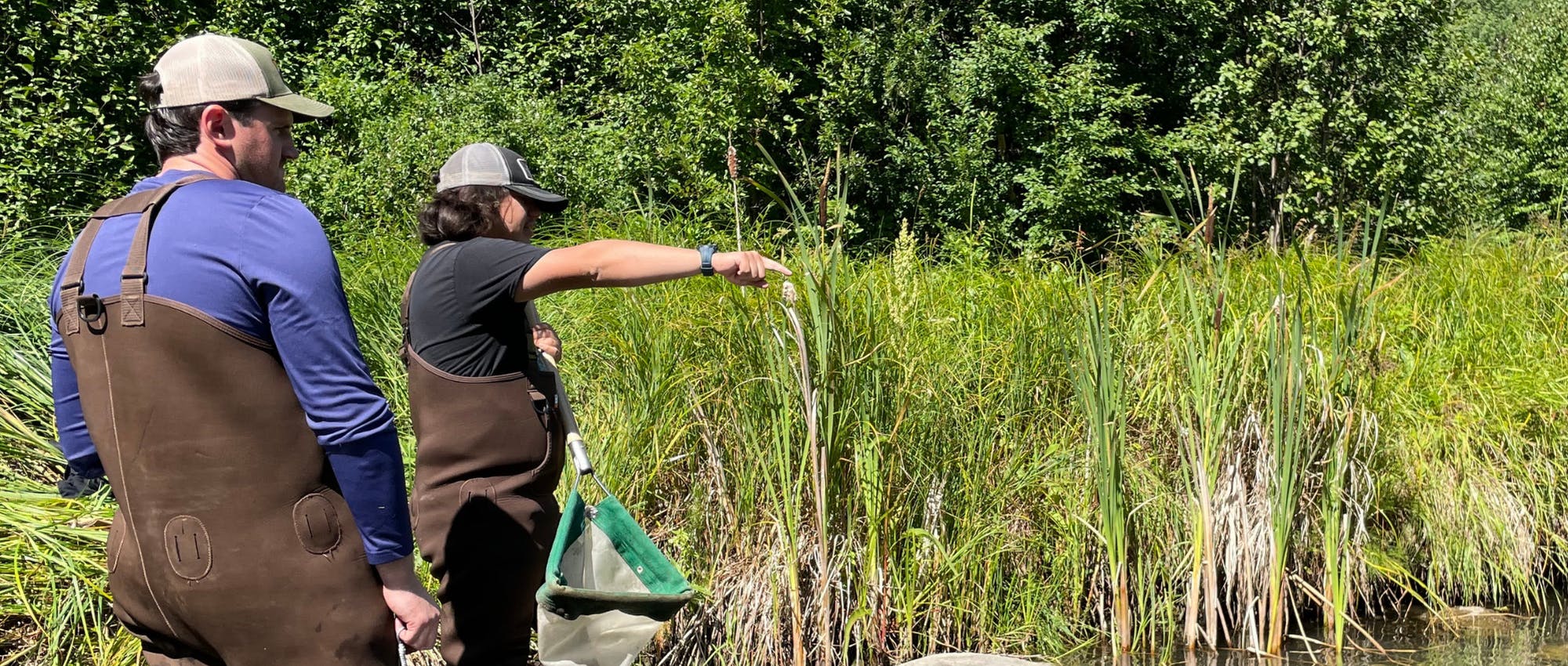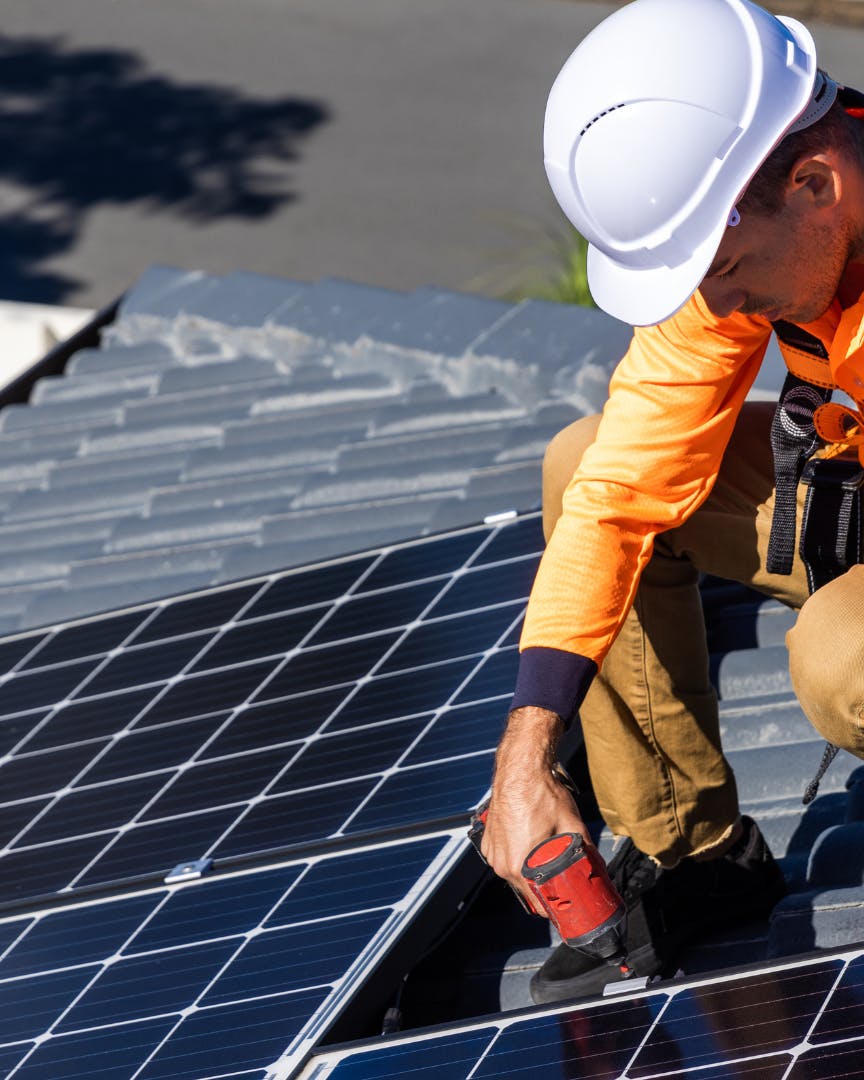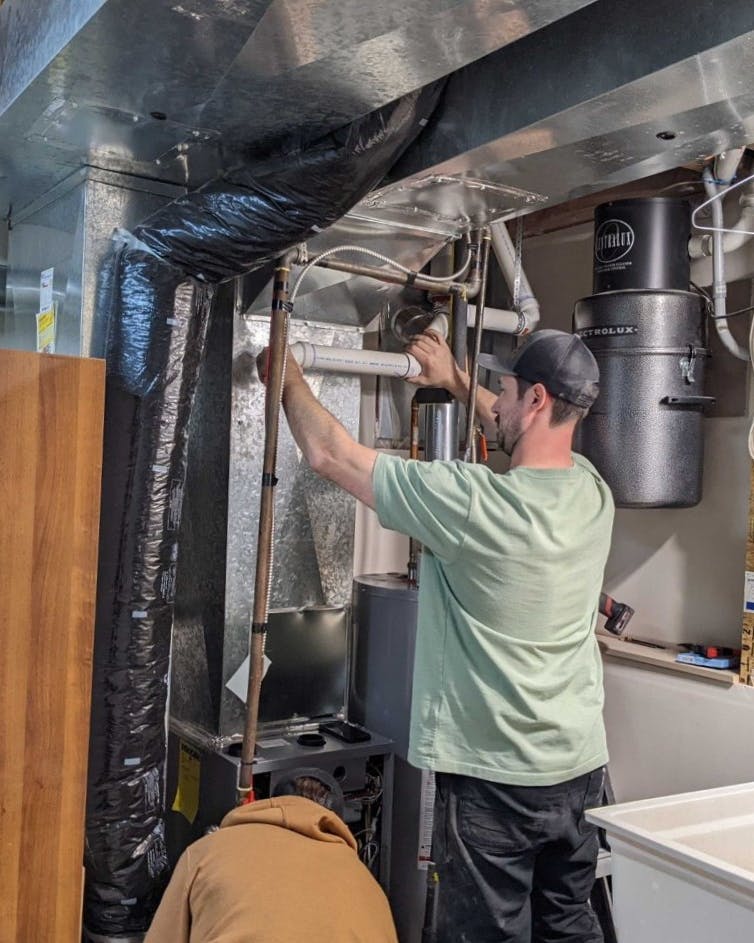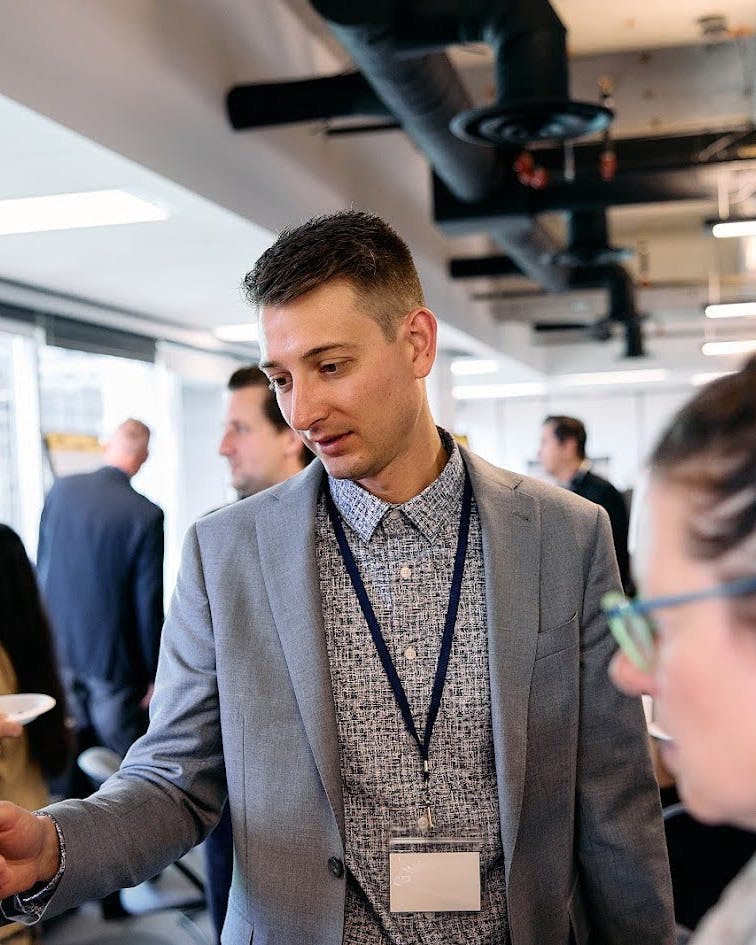Alberta environmental organizations receive grant funding for capacity-building

Photo Credit: Whitefish (Goodfish) Lake First Nation #128
Alberta Ecotrust Foundation is proud to announce the recipients of its 2025 Springboard Grant, which supports Alberta-based organizations working to strengthen their capacity. This year, 15 organizations have been awarded $147,250 in total funding to build their internal capacity, develop strategic tools and enhance their long-term impact.
Springboard Grant projects must contribute to Alberta Ecotrust’s four focus areas: Nature-based solutions and conservation, climate resilience and emissions reduction, circular economy and overarching/foundational. Therefore, projects range from empowering youth through land-based learning and advancing Indigenous-led conservation to driving circular economy innovation and expanding community climate resilience.
“Our partners across Alberta told us that building organizational capacity—time to plan, strengthen systems and invest inward—is one of the hardest things to fund. The Springboard Grant is our way of responding to that gap,” says Lori Rissling Wynn, Director of Grants and Initiatives at Alberta Ecotrust. “This year’s grantees are investing in their own strength so they can continue advancing conservation, climate action and circular economy solutions across the province. It’s exciting to see what grows from supporting this kind of foundational work.”
Rebecca Zalaski, Director of Environmental Services for Whitefish (Goodfish) Lake First Nation #128 states, "Through this initiative, our Nation will be able to invest directly back into the community through Geographic Information Systems training and certification, providing necessary skills and capabilities to contribute to a variety of environmental assessments within our Nation.”
We would like to thank our funders, supporters and volunteers for making it possible to distribute grant funding as we work towards an Alberta where people and nature thrive.
The 2025 Springboard Grantees and their projects are:
Alberta Emerald Foundation (AEF) | Guiding Alberta’s Environmental story: AEF strategic planning session 2026
As the only organization in Canada dedicated to recognizing, showcasing and celebrating environmental excellence across all sectors, the Alberta Emerald Foundation plays a unique role in amplifying the stories of individuals, communities, businesses and non-profits working toward sustainability.
With support from the Springboard Grant, the AEF will strengthen its long-term organizational capacity and environmental impact through a professionally facilitated in-person strategic planning session that brings together its Board of Directors and staff from across Alberta. This full-day retreat will focus on co-creating a refreshed three-year strategic plan that reflects AEF’s recent growth, evolving programming and commitment to environmental leadership.
Alberta Lake Management Society | LakeKeepers: Expanding water literacy through citizen science
Alberta’s lakes face increasing pressures from climate change, nutrient loading, invasive species and development. Monitoring is essential for understanding these impacts, and the Alberta Lake Management Society has addressed these challenges by engaging Albertans in water quality monitoring through the LakeKeepers program since 2017. This monitoring program provides Albertans with the knowledge and equipment to collect lake water quality data year-round on key parameters, including nutrients, invasive species, ions and more.
The LakeKeepers Program continues to grow, and with this growth, the Alberta Lake Management Society will use this grant funding to train volunteers and equip them with tools to report findings efficiently.
Alberta Tomorrow Foundation | Building capacity for a second Indigenous study area
Springboard Grant funding will allow the Alberta Tomorrow Foundation to increase its capacity to complete additional Indigenous study areas in the Indigenous Voices Module. By using the Alberta Tomorrow Simulator, they will develop new and foster existing relationships across Alberta's Indigenous Communities with the end goal of having representative study areas on the simulator of the diverse Indigenous communities in Alberta.
Computational Ecology Group Inc. | Deepening CEG's capacity to engage with Indigenous governments and communities
Computational Ecology Group (CEG) is an Alberta-based environmental non-profit that collaborates with diverse communities to advance science supporting species and landscapes at risk. Since its founding in 2020, its work has rarely included Indigenous management practices or direct engagement with Indigenous partners. CEG aims to change that by deepening its understanding of First Nations and Métis land stewardship, cultural perspectives and practices to better support Indigenous communities.
To begin, CEG will partner with Pivotal Strategic Solutions, an Indigenous-owned consultancy, to invest in internal learning and joint outreach. These efforts will embed Indigenous engagement and knowledge-sharing into its core operations, enhancing its ability to support Indigenous communities with science-based solutions for wildlife and resource management on their lands.
Ducks Unlimited Canada | Building capacity for wetland stewardship partnerships
For almost 90 years, Ducks Unlimited Canada (DUC) has been conserving and restoring wetlands across the country. Working in every province and territory, they combine scientific research, on-the-ground conservation, hands-on education, and strategic partnerships to preserve Canada's invaluable and endangered ecosystems.
DUC has been active in Alberta's boreal region since the late 1990s. This landscape of forests, rivers, and wetlands plays a crucial role in storing carbon, filtering water and supporting biodiversity. To conserve it, conservationists need up-to-date knowledge and strong local relationships. This project will give DUC staff more opportunities to learn and connect with others who are leading wetland research and conservation. Through about 150 hours of field tours, workshops, and other learning events, staff will see new research in action, share ideas, and build relationships that could lead to future collaboration.
Edmonton Federation of Community Leagues | Community leagues as climate resilience hubs
There are 163 volunteer-led Community Leagues in Edmonton. Community Leagues are often the hub of a neighbourhood, providing a place for gathering, recreation and community events. The buildings are well-positioned to provide safe spaces during extreme weather, power outages and days with poor air quality, the number of which is increasing dramatically due to the climate change-fueled wildfires of recent years.
The purpose of Community Leagues is evolving, and many are now taking on climate resilience and Equity, Diversity and Inclusion projects, capitalizing on this long-established framework to act as a platform for community-led initiatives. The goal of this project is to develop the plans and processes required to have Community Leagues act as Climate Resilience Hubs for vulnerable residents in their neighbourhoods.
Foothills Land Trust | Fundraising and outreach strategy development and implementation
Foothills Land Trust (FLT) protects nearly 1,700 acres of ecologically significant land across Foothills County, an area facing intense development pressure due to its proximity to the City of Calgary. With support from the Springboard Grant, FLT is developing a sustainable, long-term fundraising strategy to enhance its ability to conserve land in perpetuity.
This project will build a reliable framework for grants, sponsorships, donor relations and community engagement that maximizes the impact of every dollar invested. Strengthened fundraising will enable FLT to protect more private land through conservation easements, expand education and outreach, and foster more community partnerships. This is an investment in biodiversity, migration corridors and healthy watersheds, ensuring the ecological integrity of the region for generations to come.
Grow Learning Pods | Nature literacy toolkit
Grow Learning Pods is a grassroots organization that supports homeschooling families across Alberta through innovative, community-based education with a strong focus on eco-literacy. They bring families together in small learning pods and mentor them to lead meaningful, place-based educational experiences. With support from the Springboard Grant, Grow Learning Pods will build critical organizational capacity by developing a Nature Literacy Toolkit with the help of eco-education consultants and collaborating with Indigenous educators and Knowledge Keepers to integrate land-based teachings and diverse ecological worldviews.
Rooted in nature-based solutions, the toolkit will feature interactive lessons and seasonal activities that empower young learners to understand and act on key environmental issues. The toolkit will include learning modules on topics such as waste management, sustainable agriculture and food systems, climate change awareness, biodiversity, and environmental stewardship.
Milk River Watershed Council Canada | Enhancing education outcomes in the Milk River Watershed
The Milk River Watershed Council of Canada is committed to educating youth and the public about the importance and uniqueness of the watershed. The Councils’ educational programs reach youth located within and outside the watershed, through programming in partnership with Writing on Stone Provincial Park and in-class activities in the local communities. The Council will use the Springboard Grant to support the staff time, training and new material development necessary to support educational outreach capacity as an organization. Being able to connect young Albertans to the landscape with compelling and interactive, well-structured programs is a way to increase understanding about the impacts of climate change, the importance of biodiversity and watershed stewardship.
QUEST Canada | Building climate program delivery capacity through digital tools and training
QUEST Canada is working to strengthen its organizational capacity to deliver climate and energy solutions in Alberta. This project focuses on equipping its team with the tools and skills needed to better serve communities throughout Alberta as they advance resilience and emissions-reduction strategies.
With grant support, QUEST will first procure a professional project-management software platform to centralize and modernize its operations. This will directly benefit communities participating in its Net-Zero Communities Accelerator (NCA) program throughout Alberta, including St. Albert, Athabasca, Devon, Lethbridge, Medicine Hat, Okotoks and Pincher Creek, communities situated across the Bow, North Saskatchewan and Athabasca watersheds, within Treaty 6 and Treaty 7 territories.
Second, QUEST will invest in facilitation and systems-change training for staff delivering the NCA and the Energy Transition Policy Program throughout Alberta. These trainings will enhance their ability to convene municipalities, Indigenous partners, utilities and civil society in inclusive dialogue, helping communities co-design practical energy transition pathways.
Second Harvest Canada | Alberta agri-business and Second Harvest
Second Harvest established its presence in Alberta’s food rescue and food waste reduction ecosystem in 2020. With its award-winning food rescue app and a team of staff and volunteers in the province, it has rescued nearly 43 million pounds of surplus nutritious food (19,504 tonnes) in Alberta from 2020 through 2025, redistributing it to non-profits that serve equity-deserving communities. Ongoing food rescue work has already diverted the equivalent of nearly 65,000 tonnes of greenhouse gas emissions.
With support from the Springboard Grant, Second Harvest Canada will expand its Albertan food donor network and deliver its mission of keeping food where it belongs: on plates and out of landfills.
Solar Alberta | Member vetting to enhance consumer confidence in Alberta’s Solar Sector
The Alberta Solar Directory available at solaralberta.ca is Alberta’s most used solar and solar-related directory (26,000+ annual views). There is currently no pre-qualification process to be featured on the directory, other than paying Solar Alberta membership dues and agreeing to adhere to the Alberta Solar Business Code of Conduct. Solar Alberta has been relying on our complaints process as the enforcement mechanism. However, a recent increase in complaints has made it clear that the province’s solar sector would benefit from a pre-qualification process for companies to be featured on the Directory. This will ensure that the Directory remains a reliable and helpful resource for consumer protection and regulation of the province’s solar industry.
With this grant, Solar Alberta will hire a staff member to vet members and to ensure that organizations on the Directory have insurance coverage, have contracts that meet the criteria outlined in the Solar Business Code of Conduct, do not feature misinformation on their websites, and are not producing misleading advertisements. High consumer confidence in Alberta’s solar sector is key to increasing solar adoption, and the Alberta Solar Directory is an essential resource in this area, thereby reducing emissions through more solar adoption and improving Alberta’s overall environmental outcomes.
South East Alberta Watershed Alliance | SEAWA futures: From echo to insight
The South East Alberta Watershed Alliance (SEAWA) is one of Alberta’s designated Watershed Planning and Advisory Councils. It is responsible for convening diverse stakeholders, reporting on watershed health, and supporting collaborative planning for sustainable water management.
SEAWA’s work requires effective dialogue across many perspectives. Yet, discussions among board members, staff, and volunteers often turn inward, with participants anchored in their own viewpoints; rather than engaging in curiosity-driven inquiry and collaboration. Conversations can drift toward needling each other or guests and implying or assigning responsibility, which limits collective knowledge sharing and mapping.
The SEAWA Futures: From Echo to Insight project seeks to address this challenge by building organizational capacity in facilitation, diplomacy and functional consensus-building.
Sport Central | Building capacity for Alberta's sports equipment circular economy
Sport Central collects, repairs, recycles and redistributes sports gear at no cost to children aged 4-17 in families facing financial hardship. In the past 11 months, 43,975 items were redistributed and stayed in Alberta’s circular economy, while another 19,069 were reused internationally. This critical diversion takes significant staff time, from preparing hundreds of bikes for shipment, to checking and sorting multiple times a day, to shuttling gear between four Edmonton facilities.
In 2026, they will consolidate into a single warehouse, boosting efficiency by 30 percent. Springboard Grant funding will enhance staff capacity to prepare for this transition, mapping workflows, piloting process improvements and strengthening reuse partnerships.
Whitefish (Goodfish) Lake First Nation #128 | Building capacity for environmental mapping
Mother Earth Environmental Services (MEES) is the environmental division within Whitefish (Goodfish) Lake First Nation #128 (WLFN #128), Alberta. MEES is committed to building capacity within the Nation by educating, training and hiring youth community members within the environmental sector, providing them with long-term, sustainable skills and employment within their home Nation.
While First Nations have typically relied on Indigenous Traditional Ecological Knowledge (TEK), adaptations must now be made to the digital world. Digital mapping is a major and essential component of modern-day environmental assessments. This project will train two individuals to become experts in Geographic Information Systems, building capacity to provide the necessary skills and capabilities to contribute to a variety of environmental assessments within the Nation.
Visit our Springboard Grants page for more information.
Media contact:
Jessie Cheveldayoff
Communications Specialist, Alberta Ecotrust Foundation
403.209.2245
Related posts
Explore our most recent posts.



